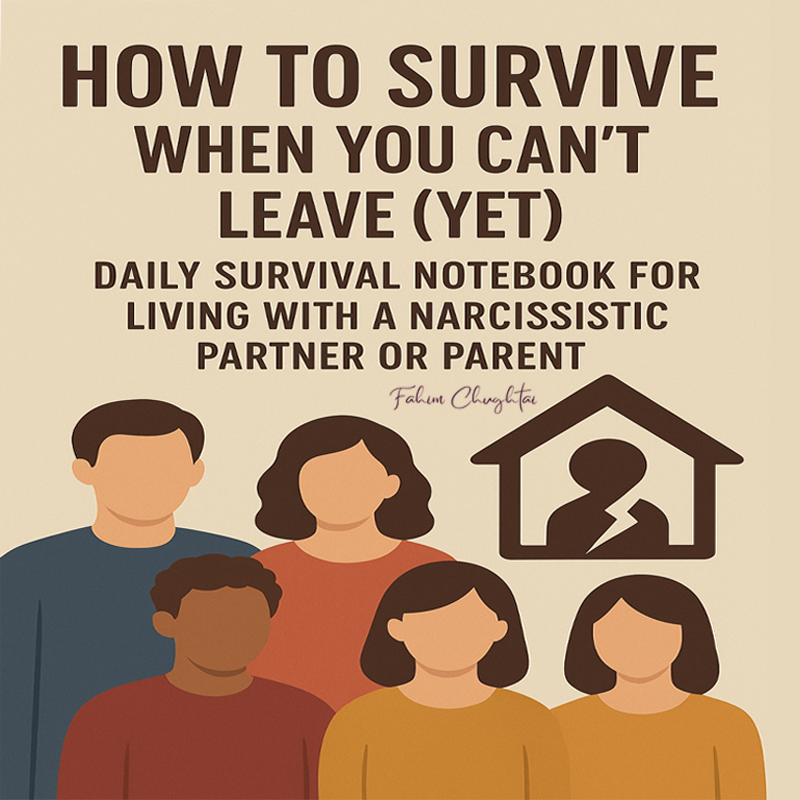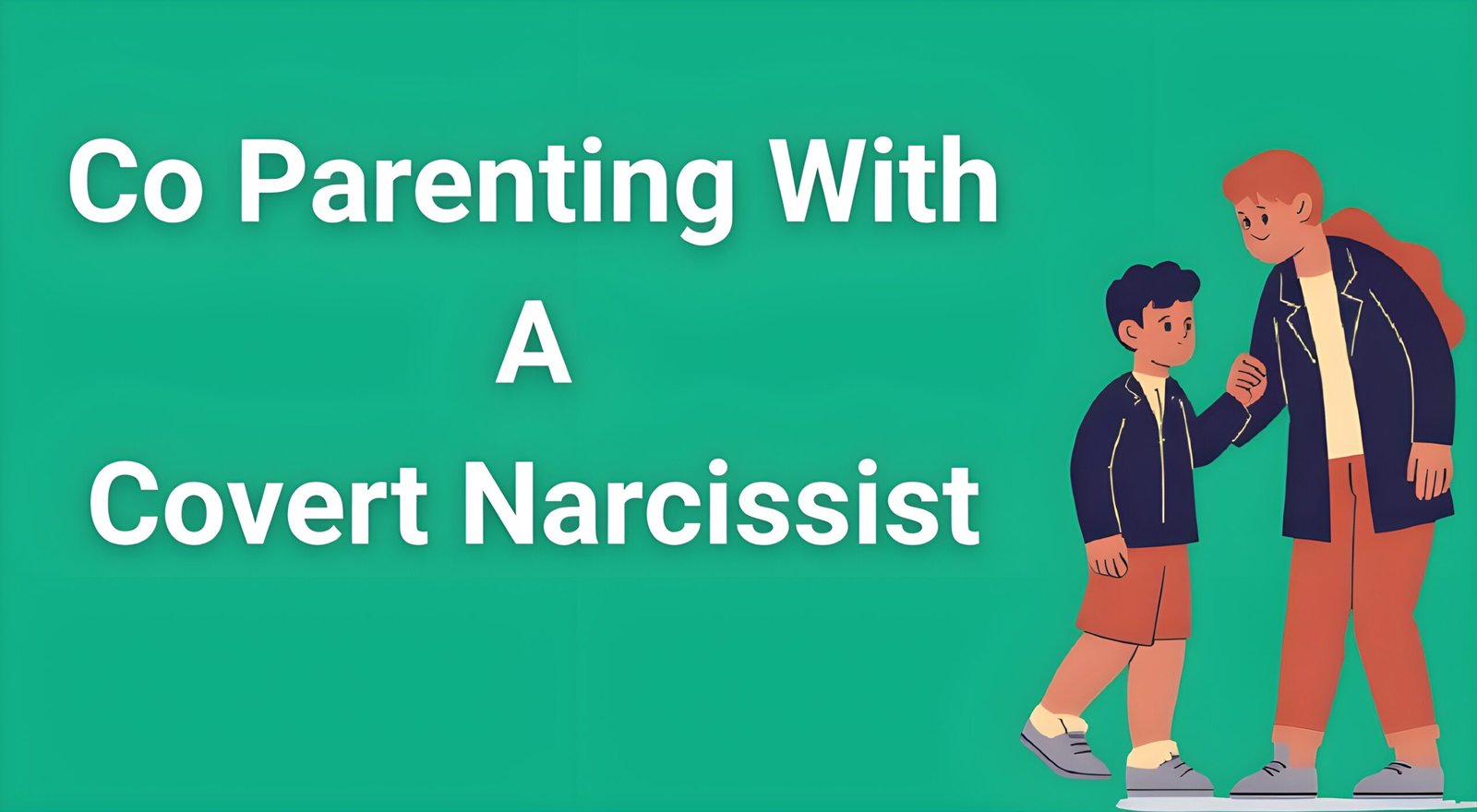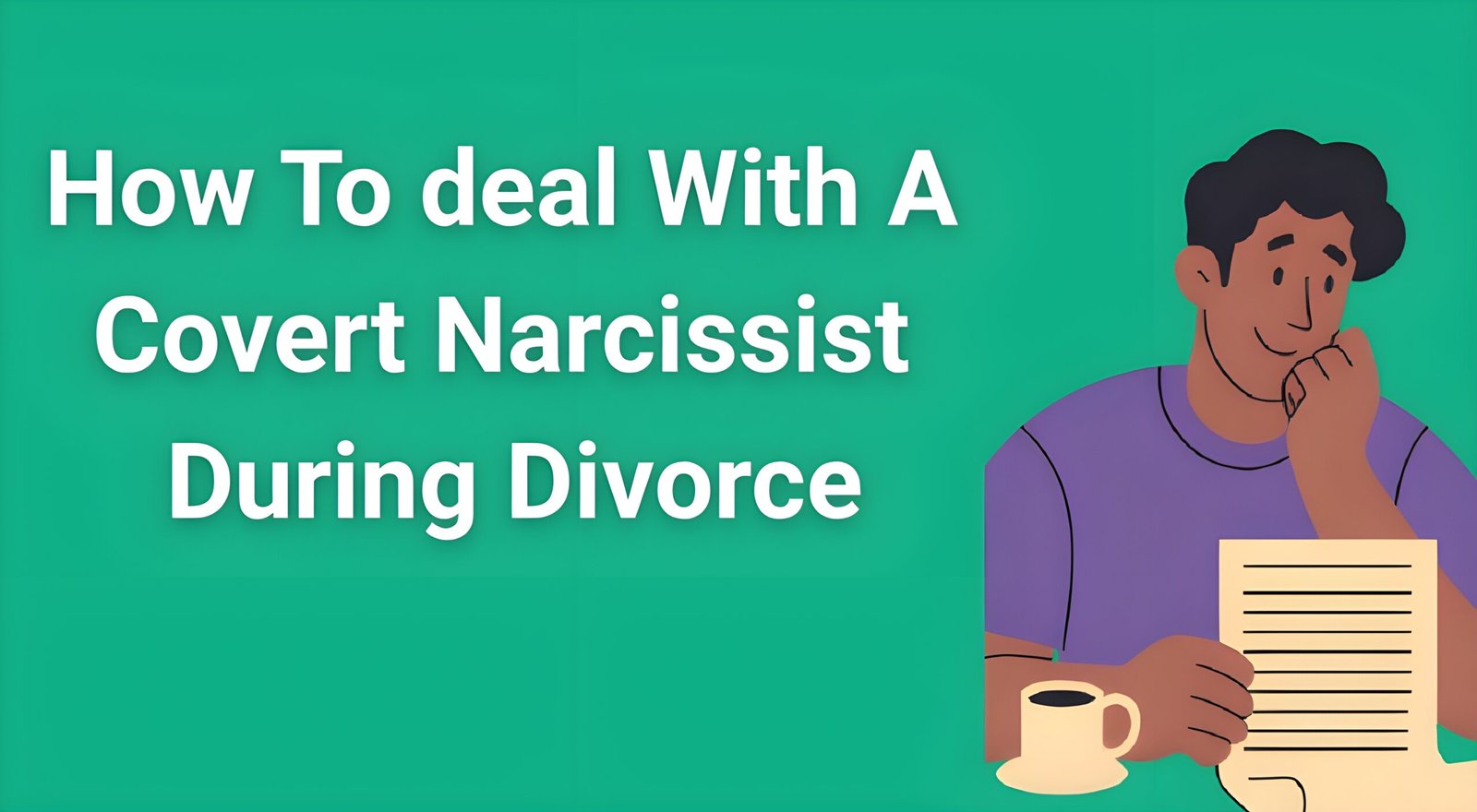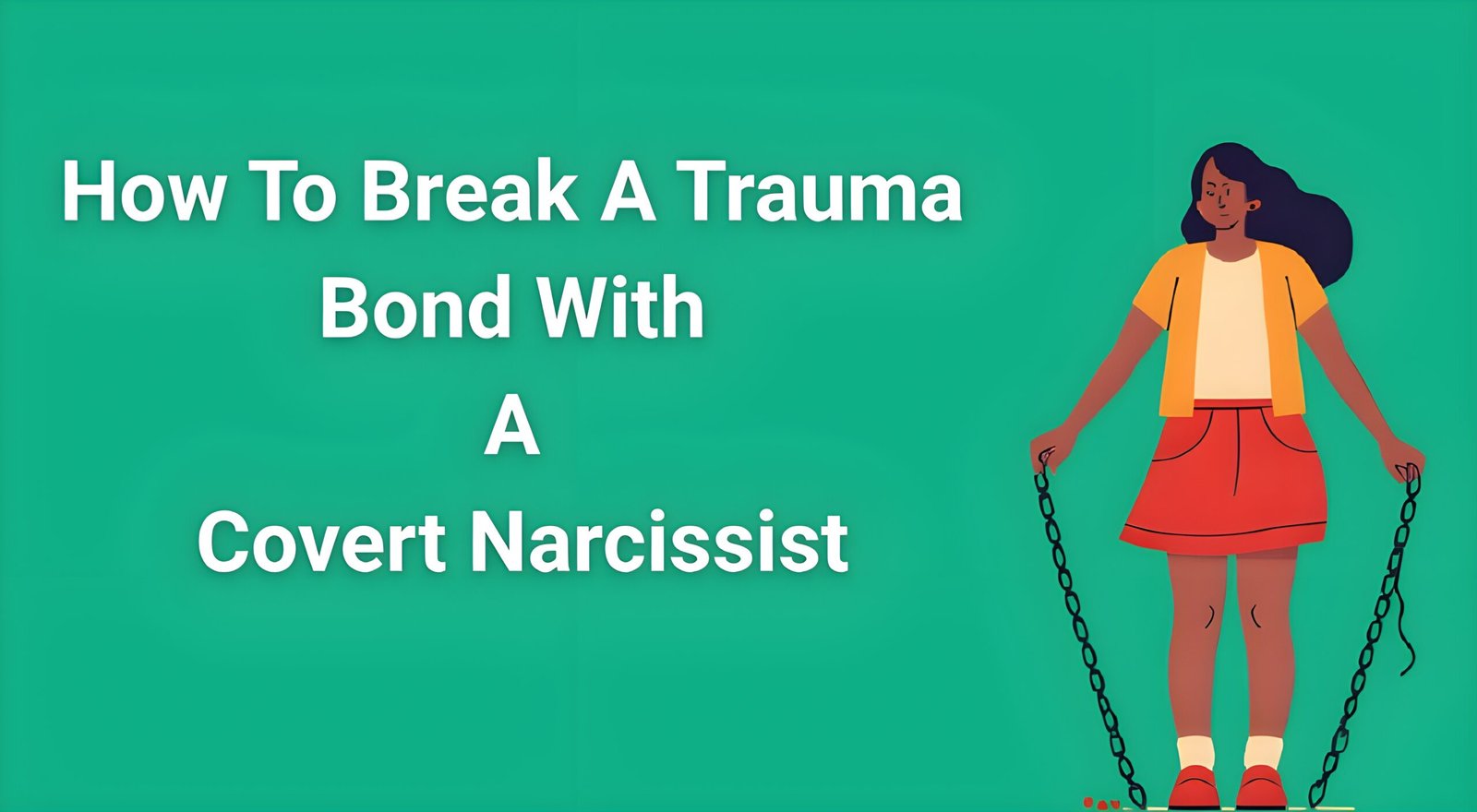Co parenting with a covert narcissist feels like navigating a minefield blindfolded while someone constantly moves the explosives. Unlike their grandiose counterparts who make their toxicity obvious, covert narcissists operate through subtle manipulation, passive-aggressive behaviors, and victim-playing that makes them nearly impossible to call out. When children are caught in the middle, the stakes become life-altering.
- Understanding the Covert Narcissist Parent
- The Hidden Damage to Children
- The Reality of Narcissistic Manipulation in Co-Parenting
- Moving from Co-Parenting to Parallel Parenting
- Protecting Yourself: Essential Strategies
- Protecting Your Children’s Emotional Wellbeing
- Practical Communication Strategies
- Breaking the Trauma Bond
- Legal Considerations and Documentation
- Long-Term Strategies for Success
- Building Your Support Network
- Signs of Progress and Healing
- Frequently Asked Questions
- Moving Forward with Hope
If you’re reading this at 2 AM wondering whether you’re losing your mind, questioning your own memories, or feeling trapped in an endless cycle of confusion and conflict, you’re not alone. The reality of sharing children with a covert narcissist is one of parenting’s most challenging situations, but it’s not hopeless.
Understanding the Covert Narcissist Parent
The Hidden Nature of Covert Narcissism
Covert narcissists differ dramatically from the stereotypical narcissist most people imagine. Instead of grandiose displays of superiority, they operate through:
Victim Playing: They’re always the wronged party, never taking responsibility for conflicts or problems. Every custody exchange becomes a sob story about how difficult you’re making their life.
Am I Dealing With a Covert Narcissist — or Just Toxic Behavior?
Passive-Aggressive Control: Rather than direct confrontation, they use subtle manipulation. They’ll “forget” important information, show up late to exchanges, or conveniently misunderstand agreements.
Emotional Manipulation: They excel at making you feel guilty, confused, or responsible for their emotions and reactions.
Triangulation: They bring other people into your parenting relationship to validate their perspective and make you appear unreasonable.
Why Traditional Co-Parenting Fails
Traditional co-parenting assumes both parents share the same fundamental goal: the children’s wellbeing. This assumption crumbles when dealing with a covert narcissist whose primary motivation is control and winning rather than collaborative parenting.
The Illusion of Cooperation: Covert narcissists can appear reasonable to outsiders while systematically undermining every co-parenting effort. They might agree to arrangements they have no intention of following or use their children as messengers to avoid direct communication.
Selective Compliance: They follow rules only when beneficial, conveniently forgetting agreements that limit their control. A covert narcissist might strictly enforce pickup times when it suits them but regularly arrive hours late when it inconveniences you.
Counter-Parenting Reality: What feels like co-parenting is actually counter-parenting, where you spend enormous energy undoing the emotional damage and confusion created by the other parent.
The Hidden Damage to Children
Recognizing the Impact
Children of covert narcissists face unique challenges because the abuse is subtle and often invisible to outsiders. The damage accumulates slowly, making it difficult to identify and address.
Emotional Invalidation: The covert narcissist parent regularly dismisses, minimizes, or ignores their children’s feelings. Children learn their emotions don’t matter or are “too much” for others to handle.
Reality Distortion: Through constant gaslighting and reality revision, children lose confidence in their own perceptions and memories. They begin questioning their own experiences and feelings.
Parentification: Children often become emotional caretakers for the narcissistic parent, learning to manage adult emotions and needs at the expense of their own development.
Conditional Love: Affection and approval depend entirely on meeting the narcissistic parent’s needs rather than the child’s authentic self-expression.
Long-Term Developmental Consequences
Research shows that children exposed to narcissistic parenting often struggle with:
- Chronic self-doubt and perfectionism
- Difficulty trusting their own feelings and instincts
- Problems with emotional regulation and expression
- Challenges forming healthy relationships
- Higher rates of anxiety and depression
- People-pleasing behaviors that persist into adulthood
Understanding these patterns helps you recognize when your children need additional support and validation from your relationship with them.
The Reality of Narcissistic Manipulation in Co-Parenting
Common Manipulation Tactics
Information Warfare: The covert narcissist withholds crucial information about the children’s activities, health, or school events, then portrays you as uninvolved or uncaring when you’re inevitably uninformed.
Schedule Chaos: Last-minute changes, “emergencies,” and convenient forgetfulness create constant instability. They might cancel your parenting time for fabricated reasons while demanding flexibility when it benefits them.
Financial Manipulation: Money becomes a weapon for control. They might refuse to pay agreed-upon expenses, hide income during support calculations, or use financial dependence to maintain power.
Alienation Strategies: Through subtle comments, emotional manipulation, and loyalty conflicts, they gradually poison your relationship with your children. The process is so gradual that children don’t recognize it’s happening.
Why Courts Often Miss the Abuse
Covert narcissists are master manipulators who present well in formal settings. They appear calm, reasonable, and concerned while you seem emotional and reactive. This presentation bias leads courts to:
- Mistake your trauma responses for instability
- View the narcissist’s calm demeanor as evidence of reasonableness
- Interpret your need for structure and boundaries as controlling behavior
- Miss the subtle manipulation tactics that don’t leave obvious evidence
Understanding this dynamic helps you approach legal situations more strategically and protectively.
Moving from Co-Parenting to Parallel Parenting
Why Parallel Parenting Works
Parallel parenting acknowledges that traditional co-parenting is impossible with a narcissist. Instead of forcing cooperation that will never exist, parallel parenting creates separate parenting spheres that minimize direct interaction while maintaining children’s relationships with both parents.
Reduced Conflict Exposure: Children aren’t witnesses to constant parental disputes and manipulation attempts.
Clear Boundaries: Each parent operates independently within their designated time and responsibilities.
Documentation Opportunities: Structured communication creates evidence trails of problematic behaviors.
Emotional Protection: You’re no longer trying to manage an impossible relationship, freeing energy for actual parenting.
Setting Up Parallel Parenting
Detailed Parenting Plans: Create comprehensive agreements covering every possible scenario. Include specific pickup/drop-off procedures, holiday schedules, communication protocols, and decision-making authority.
Neutral Exchange Locations: Meet at schools, community centers, or other public places to minimize opportunities for manipulation and conflict.
Structured Communication: Limit all communication to written formats using shared calendars, co-parenting apps, or email. This creates documentation while reducing opportunities for emotional manipulation.
Independent Decision Making: Where legally possible, establish separate spheres of authority. For example, each parent handles medical decisions during their parenting time.
Protecting Yourself: Essential Strategies
The Gray Rock Method in Co-Parenting
Gray Rock means becoming as uninteresting and unresponsive as possible to reduce the narcissist’s motivation to engage in conflict or manipulation.
Practice Neutral Responses: Replace emotional reactions with factual, brief communications. Instead of defending yourself against accusations, respond with simple acknowledgments like “Understood” or “Noted.”
Avoid Personal Information: Don’t share details about your life, relationships, or emotional state. The narcissist will use any personal information as ammunition for future manipulation.
Minimize Reactive Triggers: Identify what topics or behaviors trigger your emotional responses and prepare neutral responses in advance.
Documentation as Protection
Comprehensive Record-Keeping: Document every interaction, missed visitation, concerning behavior, or problematic communication. Include dates, times, witnesses, and specific details.
Save All Communications: Keep every text, email, and voicemail. Even seemingly innocent messages can reveal patterns of manipulation over time.
Pattern Recognition: Look for recurring behaviors rather than isolated incidents. Courts respond better to demonstrated patterns than individual complaints.
Child Welfare Documentation: Note any concerning changes in your children’s behavior, emotional state, or physical condition after spending time with the other parent.
Professional Support Systems
Many parents dealing with narcissistic co-parents find that traditional therapy isn’t enough. The unique dynamics require specialized understanding and strategies.
Consider seeking support that specifically addresses narcissistic abuse patterns and their impact on both you and your children. Professional guidance can help you distinguish between normal post-divorce adjustment and narcissistic manipulation, develop effective response strategies, and protect your emotional wellbeing while maintaining your children’s stability.
For parents seeking clarity about their specific situation, comprehensive analysis from specialists who understand narcissistic abuse patterns can provide validation and practical strategies tailored to your circumstances.
Protecting Your Children’s Emotional Wellbeing
Building Emotional Intelligence
One of your most important roles is helping your children develop emotional intelligence and self-trust that the narcissistic parent undermines.
Validate Their Feelings: Consistently acknowledge and validate your children’s emotions, even when they seem contradictory or confused. Help them understand that all feelings are acceptable, even if all behaviors aren’t.
Teach Emotional Language: Help children identify and name their emotions. Use books, games, and daily conversations to expand their emotional vocabulary.
Model Emotional Regulation: Show your children healthy ways to process and express difficult emotions. This includes demonstrating that adults can feel upset without becoming dangerous or unpredictable.
Create Emotional Safety: Ensure your home is a place where children can express any feeling without judgment, criticism, or minimization.
Rebuilding Trust and Security
Consistent Boundaries: Maintain predictable rules and expectations that don’t change based on your mood or stress level. This consistency helps children feel secure despite the chaos in their other environment.
Follow-Through: Always do what you say you’ll do. If the other parent’s promises are unreliable, your consistency becomes even more crucial for your children’s sense of security.
Open Communication: Create regular opportunities for children to share their experiences and feelings without pressure or judgment. This might be during car rides, bedtime routines, or special one-on-one time.
Reality Anchoring: Help children maintain connection to their own experiences and perceptions without directly contradicting the other parent. Use phrases like “What was that like for you?” or “How did that make you feel?”
Teaching Healthy Relationship Skills
Model Respect: Show your children what respectful communication and conflict resolution look like through your interactions with others.
Discuss Healthy Boundaries: Age-appropriately teach children about personal boundaries, consent, and the right to feel safe in relationships.
Encourage Autonomy: Support your children’s independent thinking and decision-making within age-appropriate limits. This helps counter the learned helplessness that narcissistic parenting creates.
Celebrate Authenticity: Praise your children for being themselves rather than for meeting external expectations or pleasing others.
Practical Communication Strategies
The BIFF Method
When communication with the narcissistic co-parent is necessary, use the BIFF method: Brief, Informative, Friendly, and Firm.
Brief: Keep all communications short and to the point. Long explanations provide more opportunities for misinterpretation and manipulation.
Informative: Stick to factual information only. Avoid opinions, feelings, or interpretations that can be twisted or criticized.
Friendly: Maintain a neutral, business-like tone without being warm or personal. Think professional courtesy rather than friendship.
Firm: State your position clearly without negotiating boundaries or defending decisions that are within your parental rights.
Avoiding Common Communication Traps
Don’t JADE: Avoid Justifying, Arguing, Defending, or Explaining your decisions. These responses give the narcissist material to argue with and ways to maintain control over the conversation.
Ignore Bait: Narcissists often include inflammatory comments or accusations designed to provoke emotional responses. Respond only to the practical information while ignoring attempts to trigger you.
Set Communication Limits: Establish specific times and methods for communication. You’re not required to respond immediately to non-emergency contact.
Use Professional Language: Treat communications like business correspondence rather than personal exchanges.
Breaking the Trauma Bond
Understanding Trauma Bonding in Co-Parenting
Even after separation, trauma bonds with narcissistic ex-partners often persist, especially when children are involved. This psychological attachment forms through intermittent reinforcement—cycles of tension, conflict, reconciliation, and temporary calm that create powerful emotional dependencies.
Recognizing the Signs: You might find yourself obsessively checking their social media, feeling anxious when they’re unusually cooperative, or experiencing physical symptoms during exchanges.
The Biochemical Reality: Trauma bonds create actual neurological pathways that make leaving the toxic dynamic feel impossible, even when you logically know it’s harmful.
Breaking Free from the Cycle
Breaking trauma bonds requires more than willpower—it requires systematic rewiring of your emotional and mental responses to the narcissistic co-parent.
Structured recovery approaches can help you understand why you feel addicted to someone who hurts you, develop practical techniques for managing withdrawal-like symptoms when implementing boundaries, and create new neural pathways that support emotional freedom.
Many parents find that specialized workbooks designed for trauma bond recovery provide the daily structure and scientific understanding needed to break these powerful psychological connections while maintaining necessary co-parenting interactions.
Legal Considerations and Documentation
Building Your Case
Pattern Documentation: Courts respond better to demonstrated patterns than isolated incidents. Keep detailed records showing recurring behaviors over time.
Professional Witnesses: Teachers, therapists, coaches, and other professionals who observe your children regularly can provide valuable testimony about concerning changes or patterns.
Communication Evidence: Save all communications showing manipulation, threats, or concerning behaviors. Even seemingly innocent messages can reveal troubling patterns when viewed collectively.
Financial Documentation: Keep records of missed support payments, hidden assets, or financial manipulation that impacts the children’s wellbeing.
Working with Legal Professionals
Choose Experienced Counsel: Seek attorneys who specifically understand high-conflict divorce and narcissistic personality dynamics. Generic family law experience isn’t sufficient for these complex cases.
Educate Your Team: Provide your legal team with resources about narcissistic abuse and manipulation tactics so they can better advocate for your position.
Stay Focused on Children: Frame all legal arguments around child welfare rather than personal grievances against the other parent.
Prepare for Marathon, Not Sprint: Legal battles with narcissists typically take years, not months. Prepare financially and emotionally for extended litigation.
Long-Term Strategies for Success
When You Can’t Leave Yet
Many parents find themselves in situations where they can’t immediately leave or reduce contact due to custody arrangements, financial constraints, or ongoing legal battles.
Developing Survival Strategies: Learning to navigate daily interactions while protecting your mental health becomes crucial for both immediate survival and long-term planning.
Protecting Your Sanity: Implement daily practices that maintain your emotional stability despite ongoing exposure to manipulation and chaos.
Building Future Independence: Create step-by-step plans for reducing dependence and vulnerability over time.
Specialized resources exist for parents who must remain in contact with narcissistic co-parents while building toward greater independence and protection.
Creating Stability for Your Children
Consistent Home Environment: Make your home a haven of predictability, emotional safety, and unconditional acceptance.
Extended Support Network: Build relationships with teachers, coaches, family members, and friends who can provide additional stability and perspective for your children.
Professional Help When Needed: Don’t hesitate to seek therapy for your children if you notice concerning patterns or behaviors developing.
Future Planning: Help your children develop skills and perspectives that will serve them well as they grow and potentially recognize the toxic dynamics they’ve experienced.
Building Your Support Network
Finding Understanding Community
Isolation is one of the narcissist’s most powerful tools. Building connections with others who understand your experience is crucial for both validation and practical support.
Still Living With Them? You’re Not Helpless.

Support Groups: Look for local or online support groups specifically for parents dealing with narcissistic co-parents.
Professional Resources: Therapists who specialize in narcissistic abuse understand the unique challenges you face and won’t minimize your experiences.
Trusted Friends and Family: Educate close friends and family about narcissistic manipulation so they can provide informed support rather than well-meaning but harmful advice.
Maintaining Your Own Wellbeing
Self-Care Isn’t Selfish: Your emotional health directly impacts your ability to protect and support your children. Prioritizing your wellbeing is essential parenting.
Stress Management: Develop healthy coping strategies for the ongoing stress of high-conflict co-parenting.
Identity Recovery: Reconnect with who you are beyond this toxic relationship. Pursue interests, friendships, and activities that remind you of your authentic self.
Future Vision: Maintain hope and direction by focusing on the life you’re building for yourself and your children despite current challenges.
You’ve Seen the Patterns. Now Break the Bond.
Signs of Progress and Healing
Recognizing Your Growth
Recovery from narcissistic abuse and trauma bonding is a gradual process. Celebrate these signs of progress:
Emotional Stability: You no longer experience extreme emotional reactions to the narcissist’s behavior.
Clear Thinking: You can distinguish between your thoughts and feelings and those imposed by manipulation.
Boundary Confidence: You maintain boundaries without guilt or excessive explanation.
Child-Focused Decisions: Your choices prioritize your children’s wellbeing over avoiding conflict with the other parent.
Your Children’s Healing
Improved Communication: Your children become more open about their experiences and feelings.
Emotional Regulation: They develop better skills for managing difficult emotions and situations.
Self-Advocacy: They begin expressing their own needs and preferences more confidently.
Relationship Health: They form healthier attachments and friendships with appropriate boundaries.
Frequently Asked Questions
Q: How do I know if my co-parent is actually a covert narcissist or just difficult?
A: Covert narcissists consistently show patterns of manipulation, emotional invalidation, and self-serving behavior that escalates during times when they should prioritize the children’s needs. The key difference is consistency—difficult people can compromise and change, while narcissists view any request for change as a personal attack.
Q: Should I tell my children about their other parent’s narcissistic behavior?
A: Avoid labeling or diagnosing the other parent to your children. Instead, focus on validating their experiences, teaching emotional intelligence, and helping them understand that some people have difficulty understanding others’ feelings. Let them draw their own conclusions as they mature.
Q: What if the narcissistic parent is turning my children against me?
A: Parental alienation is a serious concern. Document concerning behaviors, maintain your own relationship authenticity, and consider professional help from specialists who understand alienation dynamics. Never compete for your children’s loyalty—instead, focus on being the stable, emotionally available parent they can count on.
Q: How do I handle it when my children repeat hurtful things the other parent said?
A: Acknowledge their feelings without badmouthing the other parent. Use phrases like “That sounds confusing” or “How did that make you feel?” Help them process the experience without forcing them to choose sides.
Q: Can parallel parenting work if we have to make joint decisions about major issues?
A: Yes, but it requires very structured communication and sometimes third-party mediators. Use written communication for all decisions, stick to facts rather than opinions, and consider parenting coordinators for high-conflict situations.
Q: What should I do if I’m still trauma bonded to my narcissistic co-parent?
A: Trauma bonds are real neurological connections that require systematic healing. Consider specialized recovery resources, limit unnecessary contact, practice gray rock communication, and be patient with yourself as you break these powerful psychological ties.
Moving Forward with Hope
Co parenting with a covert narcissist represents one of life’s most challenging situations, but it’s not insurmountable. Thousands of parents navigate these treacherous waters successfully, protecting their children while reclaiming their own emotional freedom.
Your journey toward healing and stability benefits not only you but provides your children with a living example of resilience, authenticity, and emotional health. Every boundary you maintain, every trauma bond you break, and every moment of clarity you achieve contributes to breaking generational cycles of dysfunction.
The path forward requires patience, strategy, and support, but it leads to a life where manipulation no longer controls your daily experience. Your children will grow up understanding what healthy relationships look like because they experienced one with you.
Remember: You’re not just surviving this situation—you’re modeling strength, teaching emotional intelligence, and creating the foundation for your children’s future happiness. That’s not just co-parenting; that’s heroic parenting.
The clarity, strategies, and support you need to navigate this journey successfully are available. Your peace of mind and your children’s emotional wellbeing are worth fighting for. You’ve already shown incredible strength by recognizing the problem and seeking solutions.
Now it’s time to implement the strategies that will protect your family and reclaim your power.
If you’re struggling to understand whether your situation truly involves narcissistic abuse or you need personalized strategies for your specific circumstances, professional analysis can provide the clarity and validation you need to move forward confidently.






